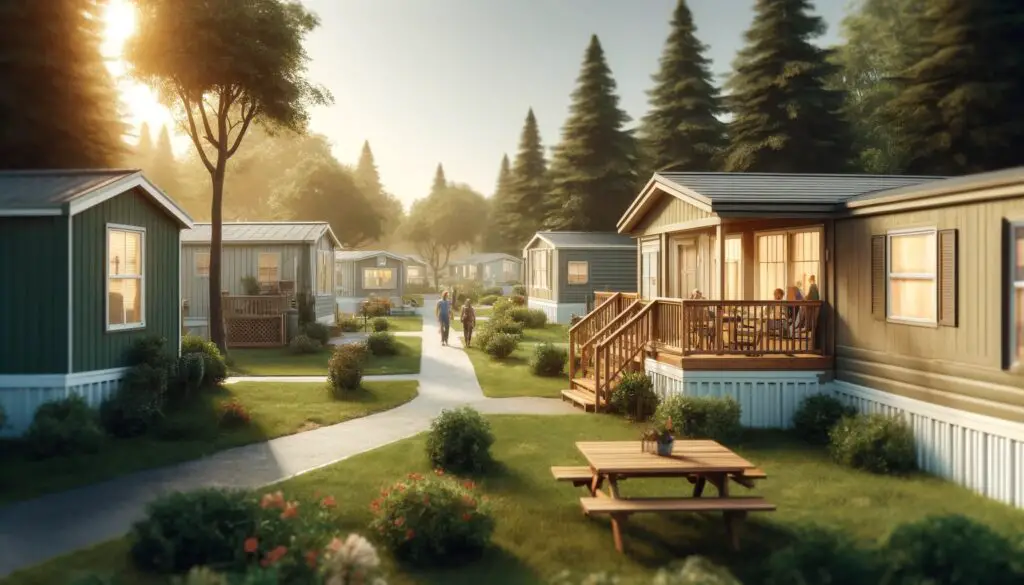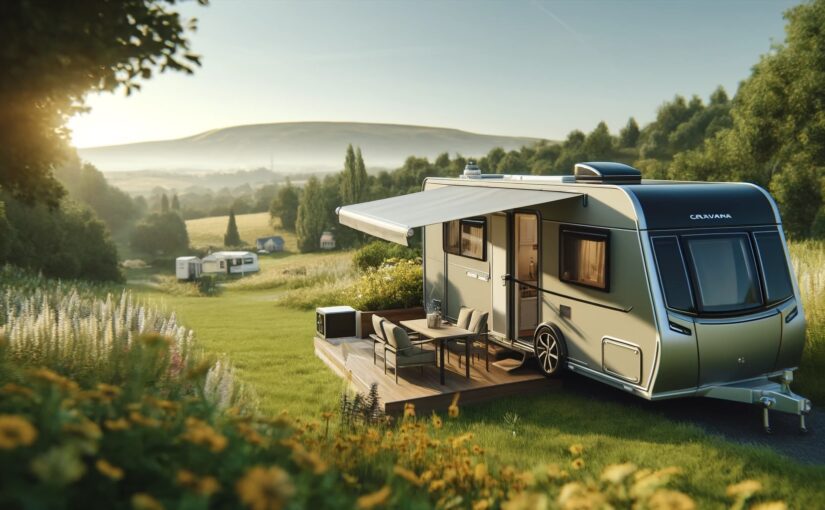In a quiet corner of rural America, amid fields and open skies, a new chapter in affordable living is starting. The search for the cheapest homes in the USA has led to innovative solutions. First, we need to redefine what it means to find a place to call home. From caravans parked under the stars to mobile homes nestled in tight-knit communities, these homes offer more than just shelter. They present a revolutionary model that other countries, struggling with housing shortages, might well emulate. Could these simple, cost-effective homes be the answer to a global challenge? This article delves into the possibilities.
The American Landscape of Affordable Housing
In the United States, the concept of affordable living has evolved significantly. Caravans, mobile homes, and tiny houses are becoming increasingly popular – especially among the younger generation. Many are seeking to escape the financial burden of traditional homeownership. These alternative living arrangements offer a range of benefits: lower costs, reduced maintenance, and the freedom to relocate. Communities built around these homes often foster a strong sense of support and friendships, as residents share common values and lifestyles.
A Global Perspective: Learning from the USA
The appeal of these affordable housing solutions is not limited to the United States. Countries around the world are beginning to take notice. They are seeing the potential for similar models to address their own housing crises. Portugal, for instance, has seen a surge in interest regarding alternative living options. A real estate agent based in Águeda – Portugal, shares his firsthand experience:
“Whenever I list a cheap piece of land for sale, my phone starts ringing off the hook. People are constantly asking if the site is suitable for placing a mobile home. It’s a testament to the growing desire for more affordable, flexible living arrangements. Many of my clients are frustrated with the traditional housing market and see mobile homes as a viable solution.”

The Legal and Regulatory Hurdles
Despite the growing interest and the clear benefits, there are significant challenges to implementing such models on a wider scale. One of the major obstacles is the legal and regulatory framework in many countries. In numerous places, laws and regulations do not allow for permanent living in caravans or mobile homes. These regulations often stem from concerns about safety, zoning, and the potential for decreased property values.
In Europe, for example, strict zoning laws and building codes can make it difficult for individuals to legally reside in mobile homes or caravans. Usually, these types of dwellings are only permitted in designated areas, often as temporary accommodations rather than permanent homes. This creates a significant barrier for those looking to adopt this lifestyle on a long-term basis.
Overcoming the Barriers
To make affordable housing options like mobile homes and caravans more accessible, a shift in policy is needed. Governments and local authorities could benefit from re-evaluating their regulations and considering the potential benefits of more flexible housing solutions. This includes ensuring safety standards while allowing for more lenient zoning laws that can accommodate these alternative living arrangements.
Advocacy and education are also crucial. Highlighting successful examples from the United States and other countries can help change perceptions and demonstrate the viability of these homes. For instance, showcasing thriving mobile home communities and the satisfaction of their residents can counteract negative stereotypes and build support for more inclusive housing policies.
Conclusion
As the global housing crisis continues to challenge nations, traditional solutions from the United States offer a beacon of hope. Caravans, mobile homes, and other affordable housing options foster community and provide stability. By learning from the USA cheapest homes and addressing the regulatory barriers, countries around the world can explore new pathways to affordable living. The journey may be complex, but the potential rewards—a world where everyone can find an affordable place to call home—are well worth the effort.
